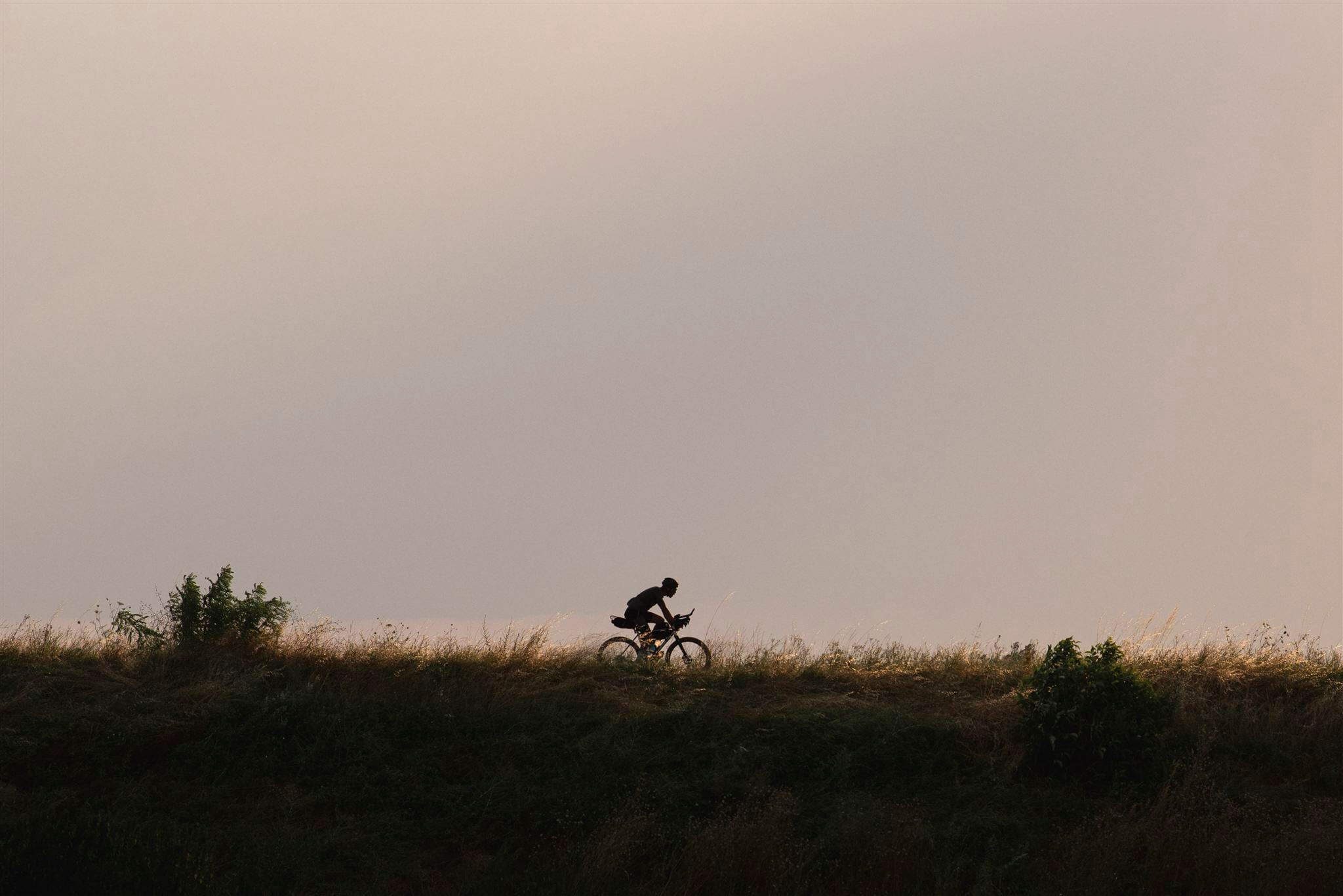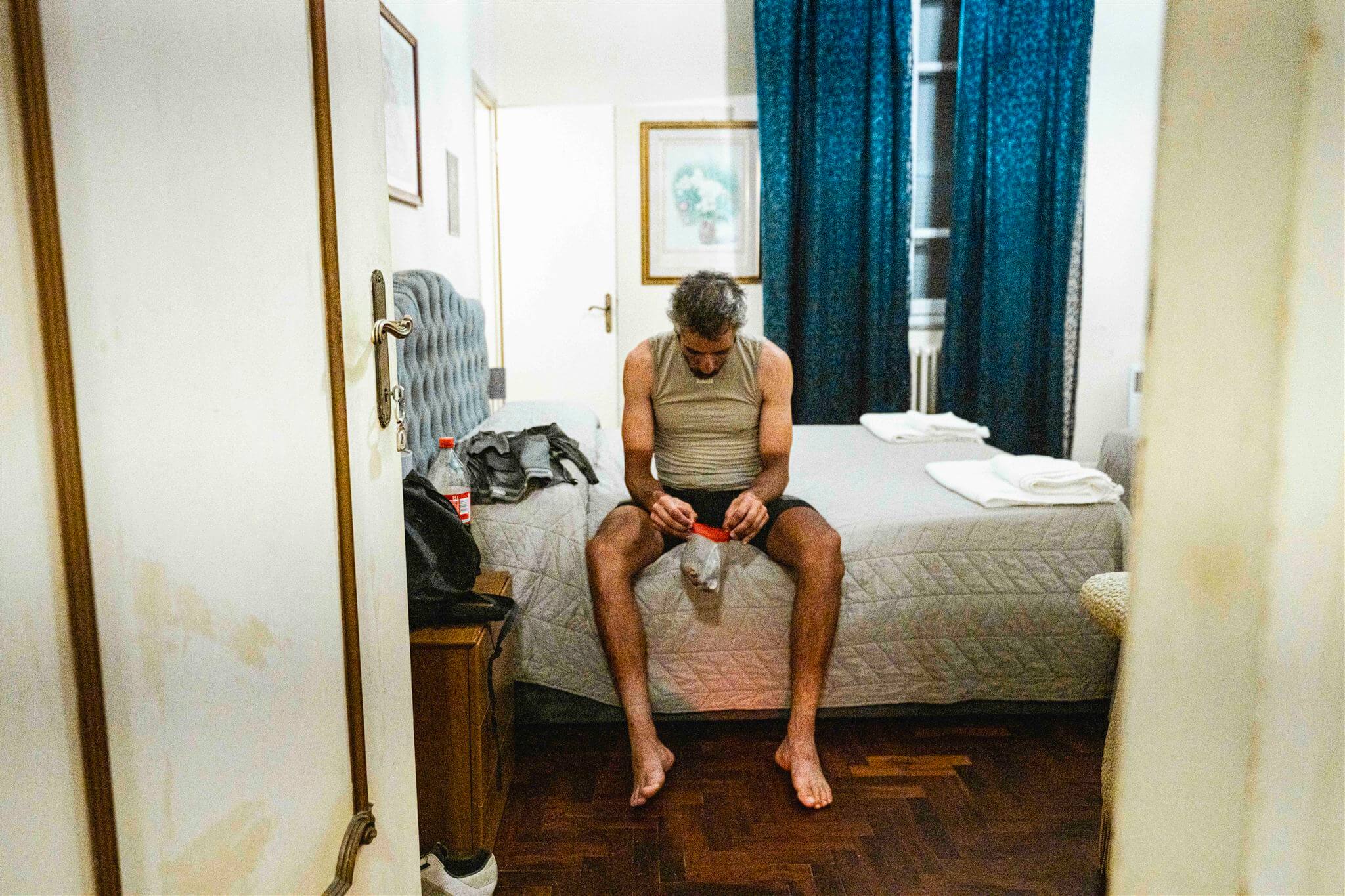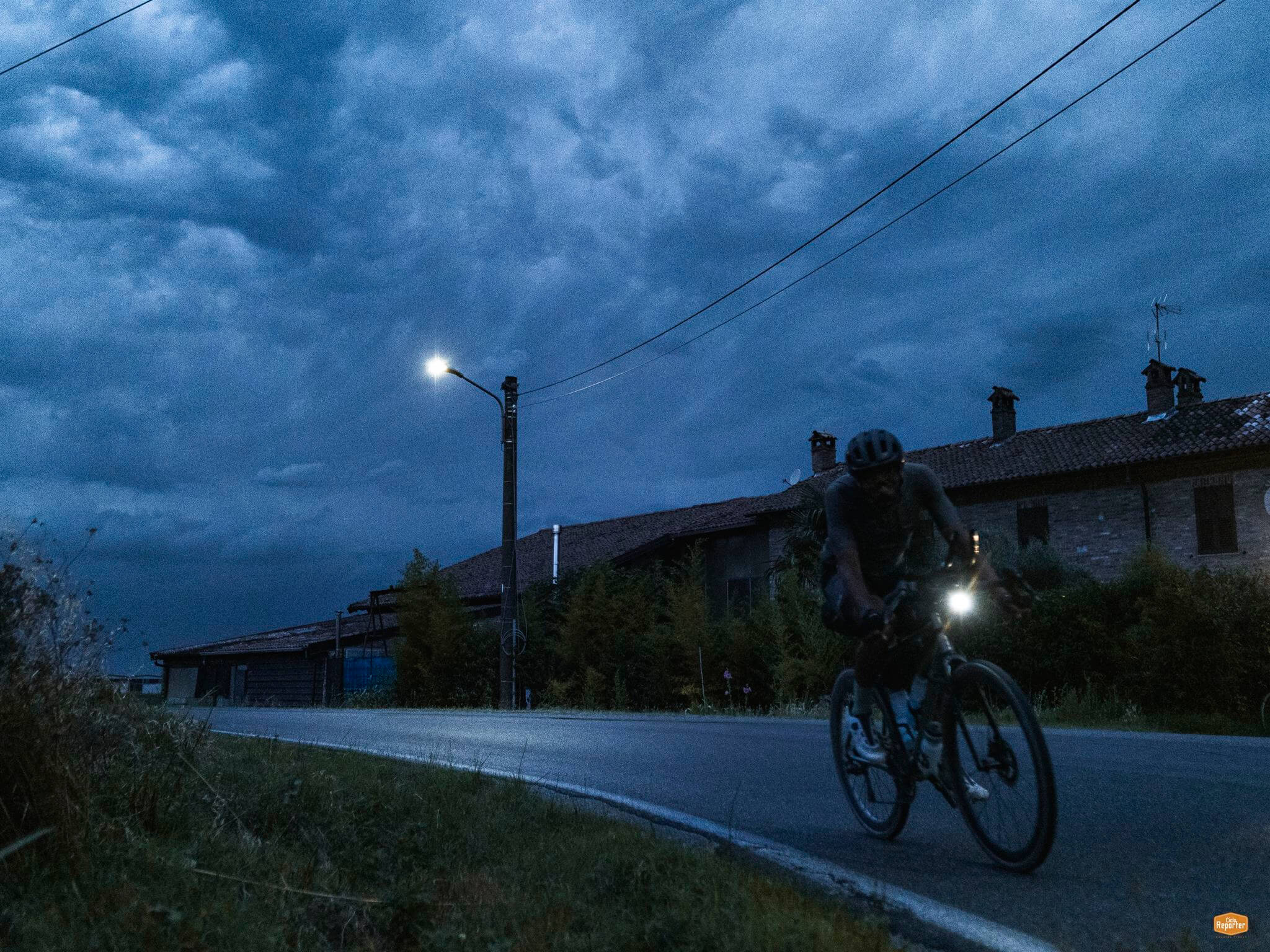“If I had known I was going to spend 50 days in jail, obviously I would not have done it,” reflects Sofiane Sehili, almost a month after his return from Russia, having been imprisoned for illegally crossing the border into the country from China.
“But I mean, looking back at the decision that I made, given my state of mind, there was no other decision that I could have made. I could not go backwards. I could not stay idle. I had to do something. A few other ultracyclists agreed with me. They said they’d have done the same thing.
“After 17,900km, when you’re just 200km away from your goal? You just try to find a way to get there.”
Sehili is one of the world’s leading ultracyclists, a niche and attritional discipline in which competitors cover huge distances over multiple days. He has won 11 events over his career, including the Atlas Mountain Race, Silk Road Mountain Race (twice), and the 2022 Tour Divide, a 3,345km route from Banff, Canada, to Antelope Wells, New Mexico.
But on this occasion he was travelling solo — attempting to break the Trans-Eurasia world record, a mammoth journey taking riders from Lisbon to Vladivostok. The previous record, set by German cyclist Jonas Deichmann, took 64 days.
“It’s something between competition and adventure,” Sehili explains from his home in south west France. “That’s what attracted me, I’ve never really been interested in races where you do laps. For me, I’ve always seen a bike as a tool to go from Point A to Point B. This challenge was extreme travelling, but it’s still travelling. It’s true to what I think cycling is, or what it should be.”
The journey first piqued Sehili’s interest after Deichmann first set the record in 2017, and after exceeding the German’s daily average on a ride from Paris to Taiwan, he decided to tackle it himself. The war between Ukraine and Russia was the first barrier, which temporarily closed the Russian border, while several attempts were delayed due to potential interest from filmmakers.
“This year I was like: ‘OK, I’m not postponing anymore’,” he says. “This is the year I’m going to do it.”
But this is not a challenge to be carried out on a whim. The logistical challenge is huge — fully self-supported, riders have to carry their own spare equipment, be able to cope with the huge changes in daily temperature, and negotiate passage over the borders of 17 countries. The route itself was vast and complex. Just weeks before he left, Israeli bomb attacks on Iran disrupted his plans to pass through the country, leading to a sizeable reroute.

“There’s always going to be problems, and solving them is part of the challenge, as well as riding your bike for 14 hours a day,” he says.
From the outside, entering Russia always appeared a highly risky part of the plan — a global pariah currently at war — but Sehili had secured an electronic visa. He was not overly worried about the border crossing on the final days of the route — especially having enjoyed a drama-free passage through 700km of Russian territory in Chechnya and Dagestan. In truth, there had been other concerns throughout the trip.
“Everything had been going well until Kazakhstan,” he explains. “I had a really big margin over the record, and I was confident that breaking it was going to be a formality. But in Kazakhstan I ended up on some very busy roads with heavy traffic. I was not comfortable riding on them. Huge trucks, day and night — it wasn’t only risky, it’s also very unpleasant.”
Sehili decided to leave, heading to Uzbekistan where he knew it would be quieter — but more problems arose after he crashed near the border, clipped by the wing mirror of an overtaking driver. Though he was largely fine, his bike lost its front brake, while he couldn’t shift gears on his big ring any longer. Further issues at the border, where they would not let him ride between the countries, forced him to a different checkpoint.
“I’d just started losing a lot of time with these border problems, the detours, the mountains, and the unpaved roads,” he says. “I went from being well on track to realising I couldn’t afford to lose another day — only a few hours here and there.”

Maintaining his average pace of close to 300km per day, Sehili managed to maintain his challenge. One major hurdle was left — the final border crossing of the trip, from northern China, close to North Korea, into Russia’s far eastern region of Primorsky. He had just 200km remaining to reach his goal — but fewer than two days remaining to break the record.
“I got to a checkpoint that was listed on the visa application as open to electronic visa crossings,” Sehili explains. “But when I arrived, I found it was only open to be passed on foot by Russian and Chinese nationals.”
Going over the border by train, as the guards wanted, would have invalidated his record. Another option was to catch the train from Poltavka to Suifenhe, a journey of some 170km, after which he would have had to cycle back to the Poltavka border crossing to continue his journey to Vladivostok.
“But when I got to the train station, the train had already left, and there was only one per day,” he says. “With all the setbacks, and half a day wasted at the border crossing, if I had waited for the next day’s train, I would not have made it to Vladivostok in time to break the record. I had to cross it that day — or the whole world record attempt would have been for nothing.
“I spent an hour or two contemplating what was possible — and I just couldn’t begin to plan my route back home. I couldn’t make that U-turn after solving so many problems, after being so obsessed with forward movement for two months. I couldn’t turn back.
“So that’s when I decided to try and see if I could cross the border somewhere else, illegally. I was convinced I would fail, because there’s a lot of surveillance in China, and these are two superpowers that are wary of each other. I was not expecting there to be a hole that I’d be able to sneak through. But I had to try.”

Riding south from Poltavka, eventually the border fence came to a stop. Instead, there was an alley leading to a building, and behind them both, a forest. Sehili began to walk through the trees with his bike before meeting a barbed wire fence.
“I noticed there was a stream going underneath,” he says. “So it was really easy to go underneath it. You just had to walk through the stream, crawl through — and there I was. I was in Russia.”
However, continuing through the forest, the scale of his error began to dawn on Sehili. Consulting his map, he saw the road he had planned to take would lead to another checkpoint, while his other option, a set of railway tracks, led to another post. He was still in a form of no man’s land between the nations — in short, he was trapped.
Exhausted from days of cycling, with his legs torn and scratched from hiking through the forest, Sehili could not face retracing his steps under the fence.
“I thought I’d walk to the railway checkpoint and tell them I got lost,” he remembers. “Maybe they’d believe me, and maybe they’d drive me back to China. They were pretty surprised to see me. But they didn’t believe me.”
The border guards called their superiors, who turned up in plain clothes. Sehili’s electronics were confiscated, whilst, during a barrage of questioning, his interrogators took down each word of his responses. He quickly realised he was not going to be driven back to China. That evening, instead was driven to a cell at a military facility.
“It was in a pretty dire shape,” says Sehili. “My mattress was probably only two centimetres thick, or rather thin. There was no bathroom, only a toilet with a sink outside the cell. It was humid, there was no way to shower, and I spent a couple of nights there.
“Then I got my stuff back, and they put me in a car. I thought: ‘Maybe this is where they drive me back to the Chinese border’. But I knew the road, and we didn’t make that turn. Instead of a right, we kept going straight. Then we arrived at another facility, and it was there that they notified me that I was going to spend at least 30 days in prison.”
Not allowed a phone call, Sehili worried about how he would let his family know what had happened to him. Under their understanding, he was due to announce his arrival in Vladivostok, and the world record with it, at any moment.
“The two worst moments were finding out that the maximum penalty for my offence was two years in prison,” he explains. “I realised just quite how serious it was. And the other moment was when, at the end of 30 days, when I had expected my trial, I was told the investigation was not over, so my detention would be extended.”
Given French president Emmanuel Macron’s hardened foreign policy towards Russia, Sehili grew concerned that he might be being used as a “pawn on a geopolitical chessboard”.
All the while, the ultracyclist was being kept in cells alongside other Russian prisoners, several detained for violent offences.
“I was detained in four different cells,” Sehili remembers. “I started in a big cell with seven other inmates, and there I got access to another inmate’s phone. But they must have had a wiretap on that guy, because they quickly switched me.
“There were all sorts of criminals there. One was there for stabbing someone, another for statutory rape. There were several small-time drug-dealers, a thief, and someone in for corruption. There were two veterans from Ukraine — and one guy who was there for not having a permit for his gun.
“Being a foreign guy, and not a criminal, you’re at the bottom of the ladder. You’re the last guy to be able to do anything in the cell. They were pretty much all quite short-tempered, so you had to be very careful about what you would do.
“But they were not violent, and that was because this was a pre-trial detention facility — so if they were violent, that would show on their file, and they would receive a harsher sentence. People were maybe unpleasant and rude — there were also nice guys — but I was never in danger.”

He also began to be better treated by the guards, after his Vladivostok-based lawyer, hired by his family after they were informed of Sehili’s imprisonment by the consulate, raised international awareness of his situation.
Eventually, he received word from his lawyer. The investigation was complete. Because there were no aggravating factors to his transgression, if he pleaded guilty, the only likely punishment was a small fine.
After an accelerated hearing process, it took just 30 minutes for him to found guilty — and released. He was exempted from paying the fine of 50,000 rubles (around €550) because he had spent so long in pre-trial detention.
Within 24 hours, he was outside Russia. Within 48 hours, he was back in France, glad to be home, still frustrated at the way his record bid ended.
Sehili does not, however, believe it would be possible to allow any leeway at border crossings when setting ultracycling records — for example, removing administrative hours from the total race time.
“I think it would be fairly complicated to monitor such a thing,” he replies. “And what I like about these endeavours is that it isn’t just about being a really fit bike rider, it’s not just about being able to ride 300km — but it’s about being someone who is travel-savvy and smart enough to solve problems.
“I don’t have anyone to blame but myself for making this decision, which was the backbone of my issues — but again, it was the only decision that I could make.”
In turn, he pushes against the notion that ultracycling events are growing riskier, as participants seek to shave hours off existing records, or even break new ground.
“Actually, I think it’s the other way around,” Sehili answers. “When I got into the sport, sleep deprivation was the big factor — we were trying to get the least sleep possible. But then, at some point, we realised that if you sleep a certain amount then you’re going to be faster and catch the people that did not sleep. In the races that last longer than five days, the winners are those who stop. So it probably is getting safer.”
So, with all that in mind, is another attempt at the Trans-Eurasian record a possibility?
“Unlikely,” Sehili replies. “I’m not going to say no — but it is very unlikely.”

